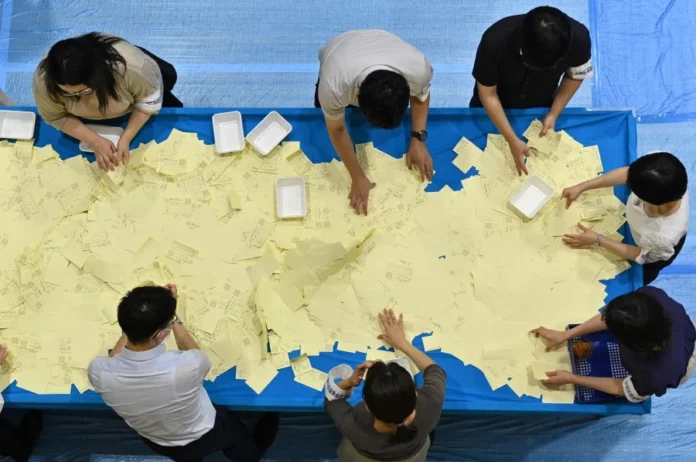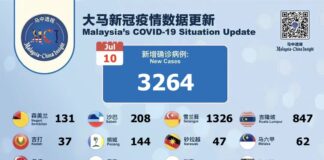TOKYO, July 11 — Japan’s ruling party scored a sweeping victory in the House of Councillors election on Sunday and secured a two-thirds majority.
With the elections taking place as scheduled just days after the assassination of former prime minister Shinzo Abe, the results mean the government will now be able to push towards revising the supreme law.
According to a report in Kyodo News, this was an unaccomplished goal of Abe.
Early results show that the ruling Liberal Democratic Party won at least 63 seats, or more than half of the 125 seats up for grabs.
The remarkable victory is believed to be due to public confidence in the nine-month-old government amid rising global prices and also the uncertainties due to the conflict in Ukraine.
The results show that LDP and its coalition partner Komeito have secured more than 75 seats to comfortably retain a majority in the 248-member upper chamber of parliament.
The Kyodo News report said the pro-constitutional amendment camp that comprises the LDP-Komeito coalition, two opposition parties and independents, now have more than 170 seats in the upper chamber.
This crosses the 166 votes needed for a first-ever revision of Japan’s 1947 Constitution. The results also mark LDP’s best results since 2013.
The major opposition Constitutional Democratic Party of Japan (CDPJ), which held 23 seats, won less than 20 seats while the opposition Japan Innovation Party, which advocates constitutional reform, won more than 10 seats, up from six before the election.
Following the victory, Prime Minister Fumio Kishida vowed to push ahead with plans to amend the Constitution.
The LDP’s constitutional reform proposals include amending the war-renouncing Article 9.
The fresh mandate will also enable Kishida to push ahead with his drive to create a “new capitalism” designed to redistribute wealth, as no national election is expected until 2025 unless the more powerful lower chamber, the House of Representatives, is dissolved.
LDP sources have also said a Cabinet reshuffle may be on the cards by September.
Meanwhile, CDPJ leader Kenta Izumi said the results showed that voters did not want to switch from the LDP.
“The situation of the opposition parties has changed considerably since the last election six years ago, with some on the right and some on the left, and unable to unite.”
The need to join forces was also raised by the Japanese Communist Party with its leader Kazuo Shii saying that the only way to change Japan’s politics was for the opposition to fight together.
Several opposition parties, including the JCP and CDJP, were united in the 2021 lower house election but it resulted in lost seats, leading them to mostly abandon a joint election strategy this time.
The JCP fielded its own candidates in several single-seat districts where other opposition parties also competed.
The Social Democratic Party’s existence is now hanging in the balance as final votes are being counted. The party needs 2 per cent of the votes in the proportional segment of the election to be recognised as a political party under the election law.
The SDP, which was formerly the Japan Socialist Party, bills itself as a long-established party that is protective of Japan’s pacifist Constitution.
It is now represented in the parliament by its leader Mizuho Fukushima and one lower house member.



















